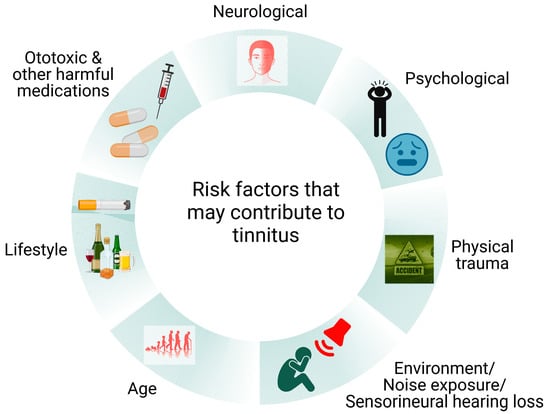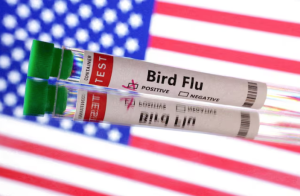United States: Tinnitus, an auditory condition that manifests as an incessant ringing or humming in the ears without any external source, lacks definitive dietary triggers, according to current research. However, anecdotal evidence suggests that some individuals perceive a connection between their food intake and the intensity of their symptoms. This condition is far from rare, impacting an estimated 1 in 4 adults.
Though the precise origins of tinnitus remain elusive, a significant portion of affected individuals also experience some degree of hearing impairment. While a cure is absent, certain therapeutic approaches—such as sound therapy, behavioral counseling, and pharmacological interventions—may alleviate symptoms, according to medicalnewstoday.com
This article examines the potential role of diet in influencing tinnitus and outlines other techniques for managing the condition.
Dietary Impact on Tinnitus: Myth or Reality?
Among those who contend with tinnitus, some suspect that specific foods or beverages might exacerbate or ease their symptoms. Although scientific research investigating the interplay between diet and tinnitus remains sparse, there are some intriguing findings.
For instance, a 2014 study based in the UK explored dietary patterns among middle-aged adults in relation to tinnitus prevalence. Drawing on data from over 170,000 participants, this research linked persistent tinnitus to certain dietary practices, noting associations with increased intake of fruits, vegetables, and whole grain bread, as well as a trend toward avoiding dairy. Conversely, participants who consumed more fish and fewer eggs reported lower instances of chronic tinnitus. Despite these associations, the impact of diet on tinnitus appeared modest, and the study did not conclusively establish causation. Other factors, such as age and exposure to loud noises, demonstrated more pronounced correlations.
A 2019 review further underscored the weak evidence supporting a direct relationship between diet and tinnitus, a conclusion echoed by Tinnitus UK. Thus, while certain dietary changes may hold potential, there is insufficient evidence to affirm that particular foods cause or significantly impact tinnitus.
Potential Dietary Factors That May Influence Tinnitus
Although no food item has been definitively linked to exacerbating tinnitus, certain dietary elements have garnered reputations for their possible effects. Here, we explore some commonly cited dietary factors.

Caffeine
The connection between caffeine and tinnitus is widely debated, but according to the American Tinnitus Association, there is minimal scientific evidence to support the notion that caffeine worsens tinnitus symptoms.
Alcohol
Similar to caffeine, research on alcohol’s influence on tinnitus is inconclusive. If individuals do not perceive a connection between alcohol consumption and tinnitus, there may be no need to alter intake. However, reducing alcohol may still contribute to overall health benefits.
Salt
A noteworthy link exists between salt intake and Ménière’s disease, a chronic inner ear condition characterized by vertigo, hearing loss, and tinnitus. While there is no scientific proof that salt affects tinnitus unrelated to Ménière’s disease, people with similar symptoms may wish to consider their salt intake.
Assessing the Role of Diet in Tinnitus
Although empirical evidence does not conclusively tie tinnitus to specific dietary factors, many people report subjective correlations. For those interested in exploring how diet might affect their tinnitus, the following steps can provide insights:
- Maintain a Symptom Journal: Track the intensity and frequency of tinnitus symptoms, documenting variables such as stress, environmental changes, and dietary habits.
- Utilize a Rating System: Develop a scale, such as 1 (mild) to 10 (severe), to quantify symptom severity.
- Monitor Dietary Choices: If certain foods or drinks appear to influence tinnitus, record the items and quantities consumed.
- Identify Patterns: Over time, review journal entries for trends or recurring themes between symptoms and diet.
- Seek Professional Advice: Consulting healthcare providers or audiologists can offer guidance on potential dietary adjustments and management plans.
Nutritional Deficiencies and Tinnitus: Is There a Link?
Some studies suggest potential links between nutritional deficiencies and tinnitus risk. A 2018 study found associations between low intake of vitamin B2, B3, water, and protein and an increased likelihood of tinnitus. A subsequent study in 2020 indicated that higher protein intake might reduce tinnitus risk, while increased calcium, iron, and fat intake correlated with heightened susceptibility. However, these findings are not yet sufficiently robust to apply universally.
Dietary Recommendations for Tinnitus Management
While research does not confirm that specific foods or supplements alleviate tinnitus, maintaining a balanced diet remains beneficial. Nutrient-rich foods support overall well-being, which may help individuals manage tinnitus symptoms by enhancing mood and supporting blood circulation.
Additional Strategies for Tinnitus Management
Beyond diet, several other strategies may aid in managing tinnitus:
- Sound Management: Background noise, such as white noise machines or calming music, may help to mask tinnitus sounds.
- Stress Reduction: High stress levels can intensify tinnitus; therefore, practices such as deep breathing, meditation, and yoga may help reduce its impact.
- Hearing Protection: Ear protection during loud events or in noisy environments may reduce further auditory damage.
- Engagement in Social and Recreational Activities: Connecting with others and engaging in fulfilling activities can detract focus from tinnitus, potentially reducing its perceived severity.
Additionally, medical options such as sound therapy, cognitive therapies, and medication may provide further relief for those with tinnitus.







Be First to Comment